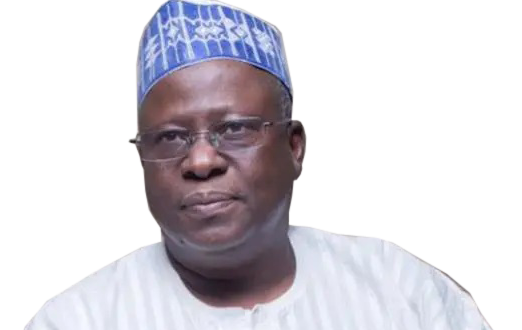As the prices of foodstuffs and other commodities continue to soar, plunging many Nigerians into hardship, the National President of the All Farmers Association and President of the Nigeria Agribusiness Group, Kabiru Ibrahim, speaks with Olumide Olusegun about the challenges facing farmers, issues of insecurity, and other pressing concerns.
The cost of food items has skyrocketed and this is causing hardship to many in the country. Why is this so despite that most of these items are cultivated in Nigeria?
The trend has been the same over many years. Once it is May, June, July, and August, we see a change in pricing, and it is always higher. The only thing is that since 2016, we haven’t had harvest pricing. That is, prices have never come down in the years that I listed. And principally because of the intervention of the CBN (Central Bank of Nigeria). The CBN developed the Anchor borrow scheme, and along the line, they also had what they called prime Anchors. The concept of the prime Anchor was that they should have brought a critical mass of farmers together, provided them support, and they would pay in kind. So that during the harvest season, they would just take their harvest. As payment for the support. But what the people did was, they went to the market and continued buying. While there is inflation, if you buy, you exacerbate the inflation. And that’s what has happened. So the intervention of the CBN was a mixed grill. On the one hand, it may have helped some farmers, but the majority of Nigerians have been paying a very big price. Because they negated the principle of GMP, which was founded in 2008, that you should not buy when there is inflation. And you buy when farmers are not getting the right prices, to encourage them to go back to the farm the following year. And this was a trend that we had before. During the harvest, farmers used to sell what they had produced and give away. Because they wanted to meet their obligations. And oftentimes, they were not getting good value. And so they were resisting going the following year. So to encourage them, the guaranteed minimum price was founded. At no time should the farmer sell below his cost of production. The government would institute a price regime, which would incentivize the farmers to go back to the land and produce the same crop. Otherwise, there would be apathy or even less attitude in production. So this trend now, because of the dwindling fortunes of the Naira, you are seeing more of inflation because your wage is the same. But the prices of these items are higher, because some of the things that are used, especially herbicides and imports like fertilizers, are costing more, and transportation from the farm to the house or the market, is also increasing. Therefore, there is a double-edged reason for inflation. And that’s why you have this inflation.
But with the current situation, how certain are you that the prices would not worsen?
If the inflation would continue, it would even worsen in July and August. But if we are lucky, we have a bumper harvest, it could come down from September, October, November, December, January, February, March, and April. And the following year, the same thing will happen. If you just keep a record of it, you will see the trend. If you look back before 2016, I’m sure you will establish that trend. We have been in this business for many years, so we know exactly what is happening.
It was said that some farmers sell to neighbouring countries, where they exchange for a higher value for their product and this is one of the reasons why we have a high cost of goods. How true is this?
There is a lot of misunderstanding about what the farmer would do. Farmers always sell either at the farm gate or at the market nearest to them. But it’s middlemen. They have a lot of money, and they buy from the farmers in larger quantities. Some of them could be taken abroad or sold elsewhere. And we dollarize everything here. Even the French franc and the Nigerian franc are challenging the Naira. So it’s possible to go to Chad, Niger, or Lomé to sell because you will get more value compared to the Naira. Unfortunately, that is what has happened. No, it’s not the farmers that are going out to the other countries to sell. But traders and middlemen are responsible for that. I know this because I am also the President of Nigeria Agribusiness Group.
Are you saying food inflation is caused by middlemen?
Of course, all food inflation is caused by middlemen. If you blame the farmers, it’s because you are ignorant of this fact. Because the farmer doesn’t even have the wherewithal to personally take what he or she has to anywhere very far. He can choose to buy other things. No one farmer produces everything that he or she needs. They will have to sell what they have and buy what they don’t have.
There is this popular saying whoever goes up in price in Nigeria never comes down again. So in the aspect of farm produce, these middlemen are responsible for such a situation?
That is a fact everywhere in the world. These people (middlemen) are investing resources. Some of it is borrowed resources and they will factor even the interest they pay, the time cost of money, the transportation, the cost for the people tending before the items are sold, and the taxes they pay in the market all will be factored in. I mean, this is normal. For instance, if you buy anything from Abuja to Lagos and it’s going by road, you have to pay a few taxes and transport. So when you go to Lagos to sell, will you not put all this there and then you profit? So that’s what happens now.
What can be done to reduce this pressure or probably eradicate the middlemen and ensure this pricing aspect is properly checked?
You have a mixed economy and free enterprise. There is nothing you can do except subsidise the input used by farmers so that the cost of production becomes low which will also reduce the cost at the farm. Another this is to make sure that there is very good, large-scale, and affordable transportation that will help to take all these things to the place of need. That is why we say the government is there to provide the enabling environment for everything including business, agriculture, and health. So the government has this important role of synchronising all the cross-cutting issues, in terms of enhancing small business. Let me give you this practical example, If you have a vegetable farmer who has to take his vegetables to Lagos and uses the road but they are delayed, the whole thing or a part can perish. So you have to have seamless and cheap transportation to carry these things from the place of production to the place of need. If you have a farm settlement, what the farmers will buy will be very small. But when you have the large-scale buyers and wholesalers, they will buy all and then go to sell in other places. And that’s going to make it easy for them and the consumer. But when you make them pay for all kinds of things, they will now transfer it to the consumer. And that’s why you have more inflation in food than any other thing else. You have a choice to come to Abuja by road, air, or rail, but do you have any choice on food, you must take it. You cannot, otherwise, you will begin to lose weight and your friends will be asking what is wrong. So everybody will have to eat food and that’s why you have food inflation impacting more on the populace than any other form of inflation. Because the other forms of inflation will give you more choices. If cars and clothes are very expensive, you don’t need to buy them but you have to eat food.
Insecurity is one of the reasons why there are issues within the farming sector and many farmers are affected. What is the current situation with farmers?
We have always said there are threat factors to the attainment of food security. And the most important threat factor is insecurity. Insecurity always is a recurring decimal in all our complaints. As farmers, if we can’t regularly go to our farms, how can we produce optimally? So, the government has to work very hard to eliminate or stem insecurity because it is a very big threat factor to the attainment of food security. The emergency in food security should also translate to an emergency in insecurity.
The issue of farmer-herder clash has also affected and discouraged many from farming. What is your position on this and what is your association doing to tackle it?
The Miyetti Allah is also a member of AFAN. A lot of the time we have had training on conflict resolution with them. We have continuously told them that we should have a symbiotic relationship. When I was young, when things were not as bad, we herders would be staying at the periphery of our farms waiting for us to harvest and they put their humps to eat the residue. While they eat the residue, they defecate and their droppings are used as fertilizer. And then sometimes, when they get milk from the animals, they give us who were children. So we used to have a very good relationship. The only machete that they carried as sticks were to control the animals and to cut off tree branches for animals to feed and not to hurt any human being. But these days, what you have is that these herdsmen use AK-47s which are given to them by the elite who gave them the animals to tend. Also, many of the herders have criminal elements hiding with them. Those criminals are the ones that are perpetrating this crime. What will these people do with the money if they abduct people and they live in the bush? What are they going to do with the money there? We should ask ourselves. There is a criminal element in the whole thing. So, the farmer-herdsman conflict is highly exaggerated. It is been infiltrated by criminals not just herdsmen.
Are you saying some elites are sponsoring these criminals among the herdsmen and yet it has been difficult to apprehend them?
If you want to look at it very well, you will observe that these things became what they are and they started in 1999. Unfortunately, it coincides with the political dispensation. Just look at it through your archives. This did not become as pronounced as they are until politics came in. So, what happened was in the beginning, the politicians used some people they called footmen to go to the villages and crannies to get or canvas for votes for them, and in the process, they even gave them drugs. They had people who were their henchmen and they were protecting them and all that. Those people got carried away and they began to engage in violence because the politicians after winning elections would normally abandon them and then they used to have money and those drugs. There was a time I presented a paper in the National Assembly at the Buhari Conference Hall where I gave a talk and I said the politicians were responsible because those young people were just used to taking drugs.
Another issue that has placed food production under threat is climate change and flooding. What is your assessment of the current situation?
Flooding is caused by climate change which we have been in denial of. But now it is catching on that people have to do many things to mitigate the effects of climate change. So as we begin to embrace the idea of mitigation, we will have fewer problems in terms of flooding and maybe other concerns like drought. Because it is only flooding that can cause problems. There is also drought.
The Minister of Agriculture and Food Security, Abubakar Kyari, recently said N309bn was used to cultivate 500,000 hectares of farmlands across the country. Are you aware of this development and what is your take on it?
No, that is not what he said. I was there when he did the press brief. The dry season farming affected wheat. And we escorted the minister to the flag-off in Jigawa State. They have the most land under cultivation for the wheat programme. So, what he was saying was that about 118,000 farmers were reached on that. And their total production, because many of them have harvested, there is an injection in the economy based on what people produced of the magnitude of 309 billion. He couldn’t have said that because the budget is just beginning to be operational. The seed that they gave people as support, the total economy was richer by N309 billion. It is the Nigerian economy, and that is not the government, it’s people like me and you who chose to plant wheat in that programme. Just read between the lines what he said, because I was there and I know many people have misquoted him. He even counted that on his X-handle.
President Bola Tinubu clocked one year on May 29. What is your assessment of his performance?
One year is a work in progress. Give him more time to maybe end of another year, before they start looking for votes for a second term. You can now assess them and that is the best time to assess because then you will know whether you are going to vote for him or not.
 National Telescope national telescope newspaper
National Telescope national telescope newspaper



